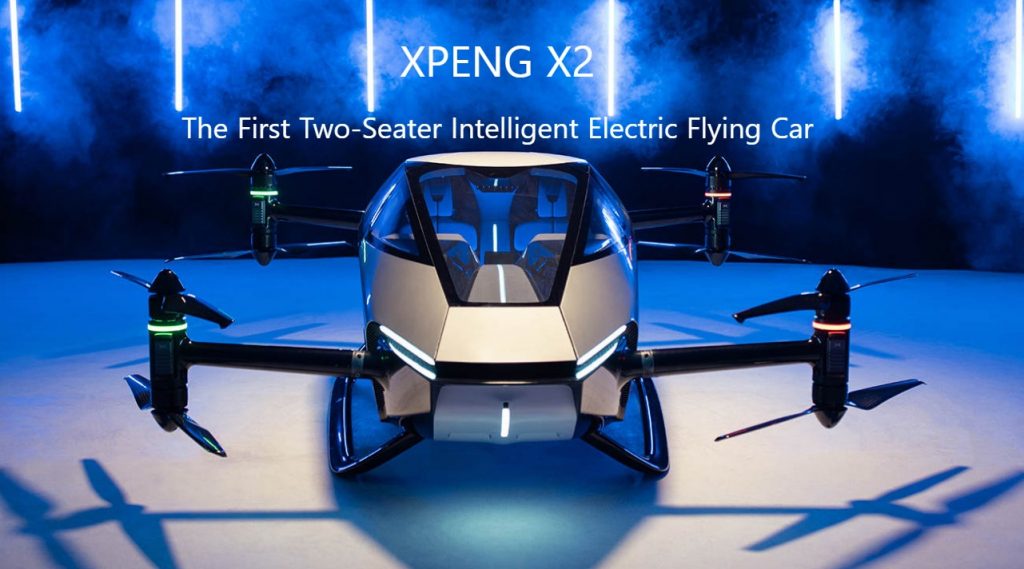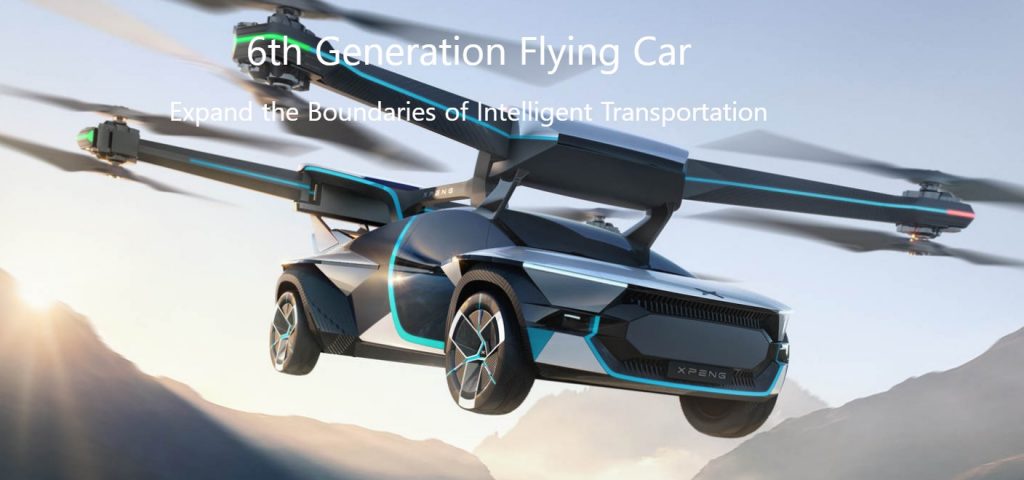Chinese Airspace will soon see low-altitude flying cars. The Civil Aviation Administration of China (CAAC) has issued a special flight permit for the XPeng X2 flying car.

XPeng X2 manufactured by XPeng Aeroht is the first manned eVTOL (Electric Vertical take-off and landing) machine to acquire this license in China. Currently, the license allows the vehicle to carry out only manned driving tests to accumulate data and experience based on which the company will then mass produce the vehicle.
The special permit does not allow passenger flights and can be used in specific areas only.
XPeng X2 is the latest eVTOL in the Xpeng Flying Car series. The vehicle shares its DNA with the limited edition XPeng P7 Electric sedan and comes with an airframe made entirely of carbon fiber. The advanced droplet design of the vehicle helps in a better aerodynamic performance than its predecessors. The manned flying car comes with a fully enclosed two-seater cockpit and supports both manual and autopilot modes.
Build for low-altitude urban commute, the flying car weighs 560kgs and can fly for up to 35 minutes non-stop. The vehicle has reported a maximum flight speed of 130 km/ hour.
XPeng Aeroht has designed the vehicle for low-altitude city flights that can be used for sightseeing and medical emergencies.
Debuted in July 2021, to date XPeng X2 has completed more than 3000 test flights including overseas flights in Dubai and UAE.
The company is planning to soon launch the flying car as a premium product for VVIPs and tech moguls in China.

XPeng Aeroht is Asia’s largest manufacturer of flying cars. The company was selected in the 2021 Hurun Global Unicorn list and received an additional grant of RMB 6 billion in bank credit in 2022.
XPeng has been deeply involved in the research and development of flying cars for many years and is right now working on the sixth-generation low-altitude mobility vehicle. The company plans to make a vehicle that can be used to drive on roads as well as fly in low-altitude urban airspace.
Flying Cars – Future of Urban Transport
Flying cars are the future of urban transportation as they provide the solution to traffic, congestion, pollution, and other urban transportation issues. Flying cars can travel shorter distances in less time and will free up the roads for pedestrians, cyclists, and long-distance travelers. Another major advantage of choosing an eVTOL is that it needs minimum infrastructure and maintenance as compared to ground vehicles.
However, companies involved in flying cars need more time and experience before they go into mass production. The manufacturers of flying cars not only have to deal with engineering and design issues but also work on environmental, regulatory, and safety clearances. Other major issues include noise pollution, take-off and landing infrastructure, limited carrying capacity, training for new pilots, and high costs.
The laws relating to flying vehicles are in the nascent stage and need to be developed before widespread adoption. At present regulators are working on developing laws related to autonomous flying cars and personal air vehicles, which will be mandatory for eVTOLs like XPeng X2.
- Xiaomi MS11 EV Live Images Surface Online, Launching Soon?
- China’s Indigenous Aircraft C919 will Take its Maiden Passenger Flight in March
- Work begins on China’s First Commercial Spacecraft Launch Centre at Hainan
(via)







